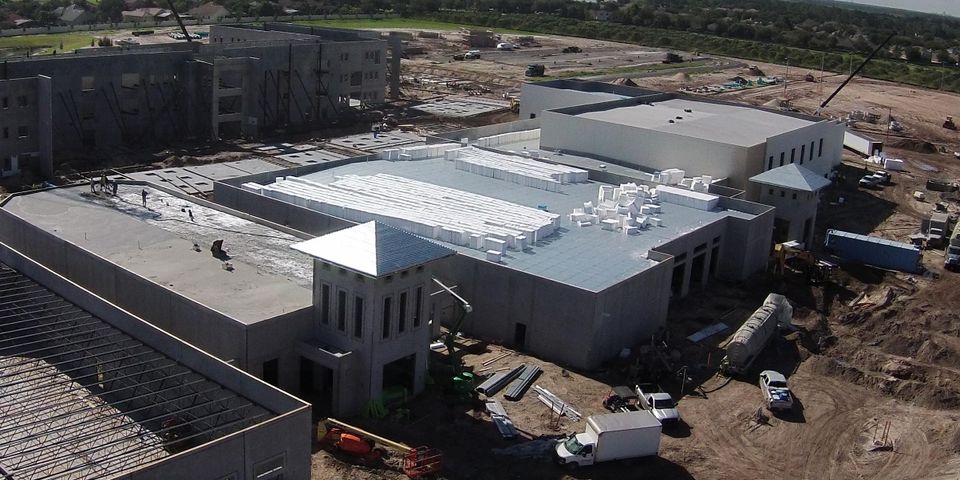Why sustainable lightweight insulating concrete beats rigid board in commercial roof deck insulation systems.

There are numerous reasons for using lightweight insulating concrete (LWIC) installed by Pro-Crete Systems on your next commercial roof deck project. It is environmentally safer and can last much longer. These systems offer a range of compressive and tensile strengths and they bond the total insulation system to the substrate. They are also versatile and can be placed over precast or cast-in-place concrete, as well as galvanized steel decking.
Lightweight insulating concrete provides a fire-resistant thermal barrier without having to spray the underside of medal decking as is required with rigid board. LWIC also has a relatively high density and acts as a heat sink that reduces the temperature fluctuations that rigid board can experience. There are no HCFC’s to dissipate over time like in some rigid systems, so R-values do not go down as a result.
Properly applied lightweight insulating concrete is highly resistant to moisture. It is reroofable in most cases, needing only time to dry and a new membrane. Rigid systems have to be completely torn out, disposed of in solid waste sites, and totally replaced when there is water damage.
Positive slope, which means better drainage, is much easier with LWIC than with rigid systems. We simply stair step the Expanded Polystyrene (EPS) boards and top with flowable lightweight insulating concrete to create any drain pattern needed. Specially cut and tapered rigid boards are needed to do this which means a complex system of numbering and color coding to properly match up the pieces, and these systems do not compensate for uneven substrates.
LWIC systems have excellent wind uplift ratings. They act as an air retarder and they bond the EPS board to the structural deck creating a monolithic system. With numerous UL, FM, and Miami-Dade County wind uplift ratings, lightweight insulating concrete roofing systems installed by Pro-Crete Systems can make the difference for you too!
About the Business
Have a question? Ask the experts!
Send your question

